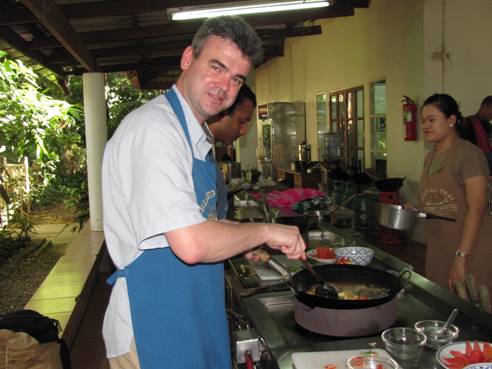How do you describe your job when you meet people at a party?
Nuclear waste cleanup, or ‘working with the unpleasant parts of the periodic table which also happen to be radioactive’
What is ‘cutting-edge’ about your work?
My section is looking at a range of methods for encapsulation of reactive metal wastes that can’t easily be cemented so we are using custom designed organic polymers and novel cements to overcome corrosion mechanisms for a range of nuclear materials. We have to look at a pretty aggressive environment chemically speaking and then add in high radiation doses with a 10000 year lifespan target for the wasteform.
What are the biggest implications your work will/could have in the future?
Disposal of legacy nuclear wastes in a safe and stable manner as well as having systems in place that will benefit the proposed future nuclear power stations in how to dispose of their waste arisings
Describe some of the highlights of your average day.
Talking with the scientists in my section and finding out what is going on in the labs and keeping up with the technical progress of the projects. I occasionally break away from the desk and am let loose in the lab to do practical work as well – everything from the lab scale up to ¼ tonne waste drums.
Describe briefly how your career has progressed to date.
After finishing my PhD I did a couple of postdoctoral positions and then got a lectureship in chemistry at the University of Wales, Swansea. After a few years I moved on to the University of Bath where I worked directly on NMR methodology and techniques with a lot less teaching. I was then tempted out of academia to work in industry at AWE in the nuclear sector where I designed and built a facility for looking at a variety of polymer systems from ‘cradle to grave’. Following this I moved to the MoD but carried on in the polymer vein looking at sensor applications. I then ended up back in the nuclear industry at Sellafield working on method development in analytical sciences followed by a post as a technical manager in fuel processing. I moved to UKAEA Ltd as a section manager in January 2009 – this was prompted by a presentation by the head of Technical Services Group, which showed the range of work we do and I thought – ‘that’s really interesting’, the rest is history and I think the best move I’ve made in my career.
How is your job cross-disciplinary?
I work over a wide range of chemistry and physics areas from corrosion chemistry through polymer synthesis to radiation effects on materials and cement behaviors on a daily basis. I also have to explain a lot of this to a non technical audience
How well is your job compensated? What is the starting salary for your field, and how much can this be expected to rise?
I feel I am well compensated for what I do. Starting salaries for new graduates are in the region of £20-24k depending on interview performance, type of degree (Bsc/MSc for example) and any industrial experience, the technical officer scale is advertised to £45k or more. Progression is based on performance and can be quite fast under the correct circumstances.
How do you see your field developing over the next 5-10 years?
I can see the nuclear waste encapsulation field seeing an expansion in terms of applications and the materials we use. All of these new systems will need to have extensive trials carried out so we are in for a busy time.
What’s the most unexpected thing about your job?
the sheer range of problems that come up from the ones you expect for nuclear clean up to some pretty odd bits of chemistry.
What’s the biggest achievement of your career so far?
Getting to this level of seniority at my age (by a pretty convoluted route

